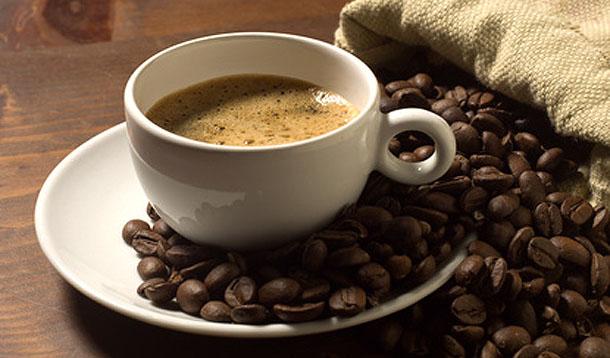
By now you've likely have heard that the inventor of the K-Cup, the pods used in Keurig coffee makers, regrets his invention. In a recent interview, John Sylvan spoke bluntly about his regrets.
“I feel bad sometimes that I ever did it,” he said.
The interview goes in depth about why K-Cups are not recyclable and despite efforts by K-Cup makers, Sylvan thinks they will never be environmentally-friendly—no matter what changes are made.
So how can you make your morning cup a little better for the environment? For starters, if you do use one of these machines and you don't want to part ways with it, purchase a reusable K-Cup filter.
![]() 5 Important Health Reasons You Need To Make Coffee A Daily Habit
5 Important Health Reasons You Need To Make Coffee A Daily Habit
If you don't own one of these machines but would like to make your morning cup more eco-friendly (without sacrificing taste!) here are 8 easy things you can start doing today:
The less distance coffee has traveled to be in your kitchen, the better. Aim to support local, non-chain cafés, and roasters in your area.
When you buy organic coffee, this means the coffee beans were grown without the use of synthetic pesticides, herbicides, and fertilizers. This also means the coffee will be healthier for you and the earth. Look for the certified organic badge on your coffee packaging.
Understanding all of the certifications and the badges can be a bit confusing. Click here for a quick rundown of all the coffee certification badges you may come across when buying organic coffee and what they mean.
Here are 3 brands to try:
Almost 85% of organic coffee is also Fair Trade Certified. There are many factors that go into the Fair Trade Certification of a product. In a nutshell, when you buy a Fair Trade certified product, it means the farmers who farmed the product or the artisan who made the product are getting a fair wage for what they produced.
Watch this short video to learn how buying fair trade coffee helps the environment.
It's always a nice treat to get your coffee from a shop, but try making it just that—an occasional treat. By making your coffee at home, you'll be saving money, and the environment—and also forgoing the one-use paper cups, stir sticks, plastic lids, lids, napkins, and coffee carriers.
![]() This Is What Happens When You Realize There Is A Coffee Shortage
This Is What Happens When You Realize There Is A Coffee Shortage
Buy reusable filters for your coffee machine instead of one-use paper filters. Of course, you'll have to take the time to wash it after every use, but the time spent doing this is well worth it and will save you money.
Don't throw out the coffee grounds! Instead, use it in your garden to enrich the soil, use it to exfoliate your skin, or even to help with an ant infestation. Click here for 20 ways to reuse your coffee grounds (and tea leaves!)
When you make coffee in a French press, you skip the hassle of the machine and filters. Plus, if you master the technique, many swear that coffee made this way tastes superior to all other coffee.
If you must get your coffee from a shop, bring in your own reusable cup. Some shops even offer a discount if you do this.
Enjoying coffee can still be part of your day - but why not try to lessen the footprint it leaves? Drink up!